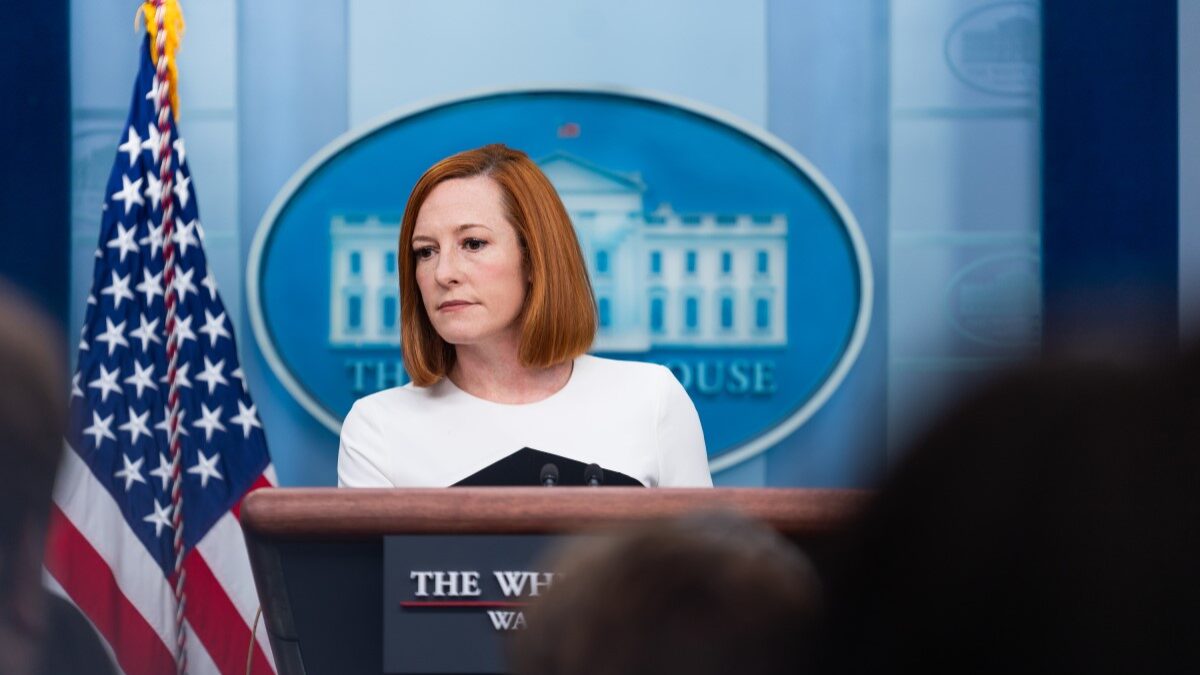If ever one day and one incident explained the problem with the elite media in Washington, April 6 seems as good as any. On that day, White House Press Secretary Jen Psaki brandished a binder at the daily press briefing, claiming it contained information regarding Covid spending that the Biden administration had provided to Congress:
This is 385 pages of information we have given to Capitol Hill and briefed them on how COVID funding has been spent, what we need, what the needs are. These are the kind of details we have provided and constantly briefed members on the Hill to make clear to them what the impact will be if we do not get this funding. You can have access to this for a prop if you would like it as well. We’ll make copies for you.
Want to take a guess how many “reporters” bothered to ask Psaki for the information she theatrically waved around? A grand total of one.
Therein lies the relationship between this administration and press corps: The White House pretends to offer information to reporters, and the press pretends to scrutinize it—while in reality both care more about promoting themselves than actual transparency and accountability in government.
Hiding Access to Information
The sole reporter who requested copies of information Psaki claimed she would provide, Rachel Cohrs of Stat news, deserves credit for her diligence. Cohrs’s efforts seem all the more remarkable given the conditions she encountered:
When Stat took the White House up on the offer, officials refused to make copies of the binder. In fact, it wouldn’t even let Stat take photographs of the contents. Instead, the administration gave this reporter one hour to look through the nearly 400 pages of budget tables and congressional correspondence. White House officials offered the review in a small conference room in the Eisenhower Executive Office Building across the street from the White House, under the supervision of a budget office employee.
The fact that Psaki made her comments on April 6, yet Cohrs did not publish her story for nearly three weeks, also implies it took a certain degree of persistence, follow-up, and pestering of administration press officials to get even the limited access that she did. So much for “we’ll make copies for you.”
According to Cohrs’s notes from the brief time she could view the documents—because the White House would not let her make copies, as Psaki publicly pledged—the binder contained some noteworthy omissions:
While the White House included documents in the binder that could be embarrassing for Republicans, documents that could have better illuminated the White House’s spending strategy were left out. There were none of the documents that would have explained how White House officials chose to move around money between accounts, which they did repeatedly. Those documents would indicate that the funding wasn’t spent exactly how Congress intended. The Biden administration was also supposed to send Congress plans for how to spend Covid-19 relief every two months, but those documents weren’t included either.
In other words, even when the administration provided the press with access to some documents—albeit on a much more restricted basis than Psaki claimed it would in front of the cameras—it still played “hide the ball” by refusing to disclose important information as to many of the specifics regarding COVID spending.
Different Presidents, Different Standards
Just as a thought experiment, substitute the phrase “Trump tax returns” for “spreadsheets regarding Covid funding” in the story described above. Does anyone believe that only one reporter would bother to request copies of this information after a press secretary promised to make it available?
Just as important, does anyone believe that the entire White House press corps would not become consumed with (self-)righteous indignation when the administration failed to make the information available on the terms the press secretary publicly promised?
The questions practically answer themselves. If anyone had any doubt, he need only recall the fact that the press continues to ignore the ways Joe Biden illegally dodged taxes himself, while remaining obsessed with what is or is not in former President Trump’s returns.
Reporters, Do Your Jobs!
A gentler interpretation of the above might allow for the facts that an administration can swamp reporters in paperwork, much of it useless, and that journalists only have so many hours in a day to scrutinize a president’s actions. However, that argument breaks down when one recalls that only one reporter, Cohrs, even showed enough interest to ask Psaki for the information she said she would provide.
Some reporters take the time and effort to dig into a story. For instance, I spoke with The New York Times’ late, great Robert Pear at all hours of the day and night. He called me as I entered my office around 8 a.m., and during lunch at a downtown restaurant on a Saturday afternoon.
When I returned his call one evening after a work trip, expecting to leave a voicemail, Pear answered the phone, still plugging away at his desk. Pear even called to ask for a copy of a lengthy document I had compiled, because he wanted to review my footnotes and sources. That is called thorough journalism—and it warms my heart to think about it.
The example of Pear seems particularly relevant as Washington returned this last weekend to the White House Correspondents’ Dinner, a.k.a, the “Nerd Prom.” An entire cavalcade of events before and after the main banquet on April 30 led one publication to call the event “Hangover Week in Washington.”
Maybe, just maybe, instead of spending time guzzling champagne, preening in front of Hollywood celebrities, and acting self-important, journalists should spend that time focused on actual journalism. It would make them look far better, to say nothing of more useful, in the eyes of the American people.









